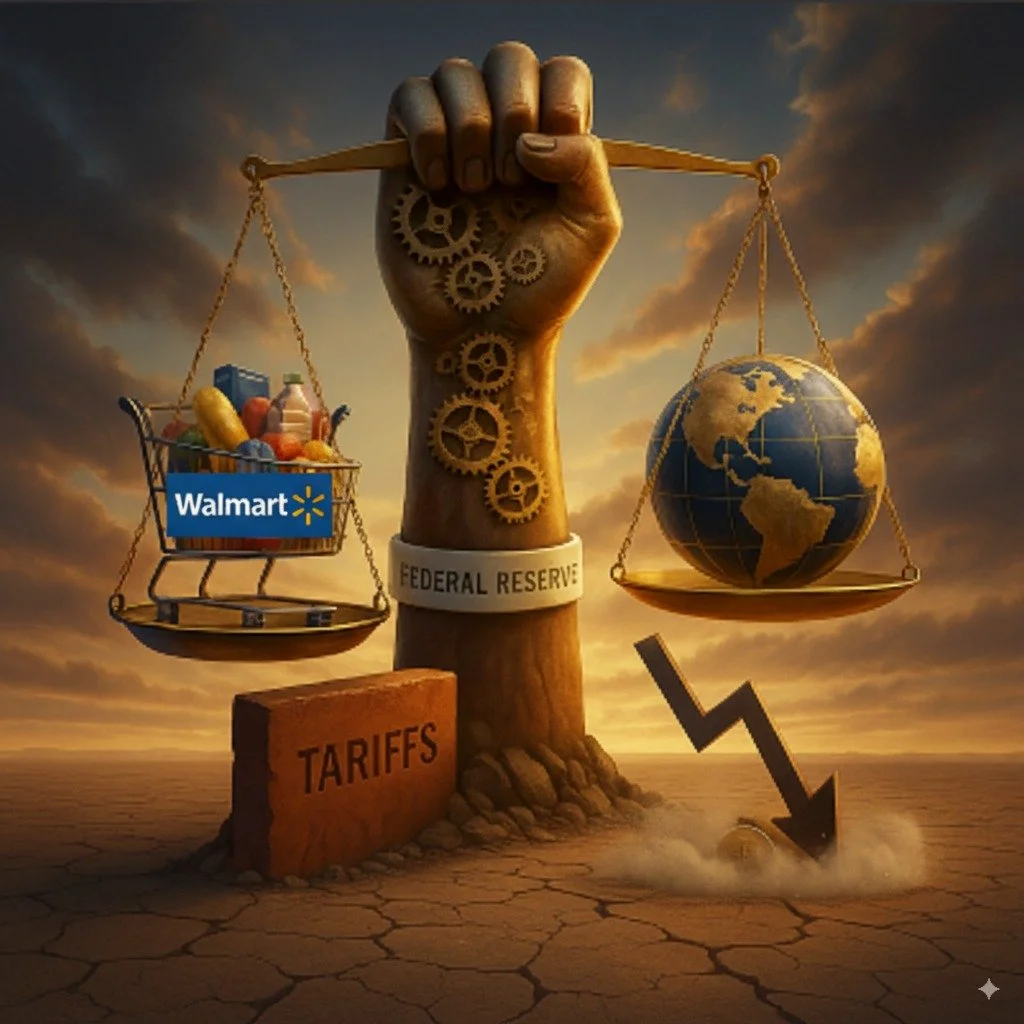On the Federal Reserve, Walmart, Tariffs and the Economy
Last week, U.S. Federal Reserve Chair Jerome H. Powell, speaking at a Jackson Hole, Wyoming said:
“In the near term, risks to inflation are tilted to the upside, and risks to employment to the downside—a challenging situation. When our goals are in tension like this, our framework calls for us to balance both sides of our dual mandate.
“The effects of tariffs on consumer prices are now clearly visible. We expect those effects to accumulate over coming months, with high uncertainty about timing and amounts. … Come what may, we will not allow a one-time increase in the price level to become an ongoing inflation problem.
“Overall, while the labor market appears to be in balance, it is a curious kind of balance that results from a marked slowing in both the supply of and demand for workers. This unusual situation suggests that downside risks to employment are rising.”
Separately, Walmart CEO Doug McMillon said during the company’s earnings call:
we are “keeping our prices as low as we can for as long as we can [however] as we replenish inventory at post-tariff price levels, we’ve continued to see our costs increase each week, which we expect we’ll continue into the third and fourth quarter."
Note:Current tariff ratesinclude 10% baseline on all imports; 25% on non-USMCA-compliant goods from Canada and Mexico; 50% on steel, aluminum, and copper; and 30% on Chinese goods (down from a peak of 145%). Additional country-specific tariffs reach as high as 50% (e.g., Brazil, India).
OUR TAKE
Powell highlights the Federal Reserve's difficult balancing act between labor market deterioration risks and persistent inflation; his comments suggest policy decisions will hinge on how quickly employment weakens relative to price pressures.
Powell called tariffs' impact on consumer prices 'clearly visible,' while McMillon acknowledged Walmart is absorbing 'post-tariff price levels.' Both underscore that current inflation is policy-driven rather than demand-driven—a significant challenge for the Federal Reserve, whose tools have limited ability to counter tariff-induced cost shocks.
McMillon's remarks may serve as an early warning for consumer hardship. With Walmart's ability to absorb tariff costs nearing its limit, households are likely to face higher prices just as employment risks are 'rising,' compounding the Federal Reserve's challenge.

